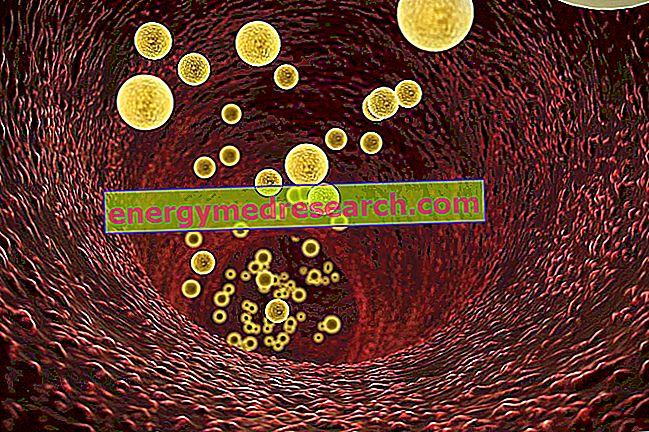See also: CITROSODINA ® - Sodium bicarbonate - Sodium bicarbonate and lactic acid
Uses and Property
Sodium bicarbonate, due to its ability to neutralize acids, is often administered in the presence of heartburn, gastritis, peptic ulcers and whenever it is necessary to alkalize urine or other body fluids.
Drug poisoning

Kidney stones
In parallel, in predisposed patients, the alkalinization of urine with sodium bicarbonate is useful to prevent the formation of kidney stones of uric acid.
Indigestion and Reflux
However, the most well-known application of bicarbonate remains the treatment of indigestion, acid reflux and, more generally, of all the conditions associated with excessive gastric acidity. In contact with hydrochloric acid (HCl), typical of the gastric environment, sodium bicarbonate develops the following reaction:
NaHCO 3 + HCl → NaCl + H 2 O + CO 2 (g)
CO 2 (g) is nothing but carbon dioxide in the gaseous state, which is released in the stomach by dilating the walls. The increase in blood pressure therefore increases the volume of the organ, just as happens after a hearty meal; this distension, however, is known to be the most important stimulus to the release of gastrin, a hormone that increases the synthesis of digestive enzymes but above all of hydrochloric acid from the stomach. Thus, in addition to an annoying sense of gastric bloating and meteorism, the intake of sodium bicarbonate as an antacid can trigger a reflex, mediated by gastrin, which increases the production of hydrochloric acid; after an initial relief it can therefore produce a worsening of the symptoms.
The above makes us understand also how sodium bicarbonate should never be taken after great binges, since the stomach is already hyper dilated by overeating.
In pharmaceutical preparations with an antacid action, sodium bicarbonate is sometimes associated with dimethicone, which acts as a carminative reducing the size of the CO 2 bubbles that form in the stomach, thus attenuating the phenomena of flatulence and belching.
The need for frequent administration, to compensate for the rapid neutralization of bicarbonate, can lead to an excessive intake of sodium, a mineral that, at high concentrations, becomes dangerous for those suffering from hypertension (given the increase in volume and strength with which the blood pushes on the walls of the vessels); it follows a higher risk of hypertension, edema and water retention.
Other Uses
In the blood the bicarbonates act as important buffers of the acids, helping to keep the blood pH at rather constant values; the intravenous administration of a solution of sodium bicarbonate can therefore be practiced in a hospital setting if there is a picture of metabolic acidosis.
Sodium bicarbonate supplements are sometimes used by athletes to prolong the lactate resistance to stress, during which large quantities of lactic acid are produced and dumped into the blood, with a consequent tendency to mild acidification.
Also read:
- Cancer and baking soda
- Sodium bicarbonate to whiten teeth
Use and Precautions
By virtue of the potential and numerous side effects, the use of sodium bicarbonate should meet the prior medical consent, especially in the presence of ongoing diseases or concomitant drug therapies.
As an antacid, it is recommended to use it for one or two hours after the end of meals, together with a glass of water; the dosage is 325-2000 mg of sodium bicarbonate per os, from one to four times a day.



